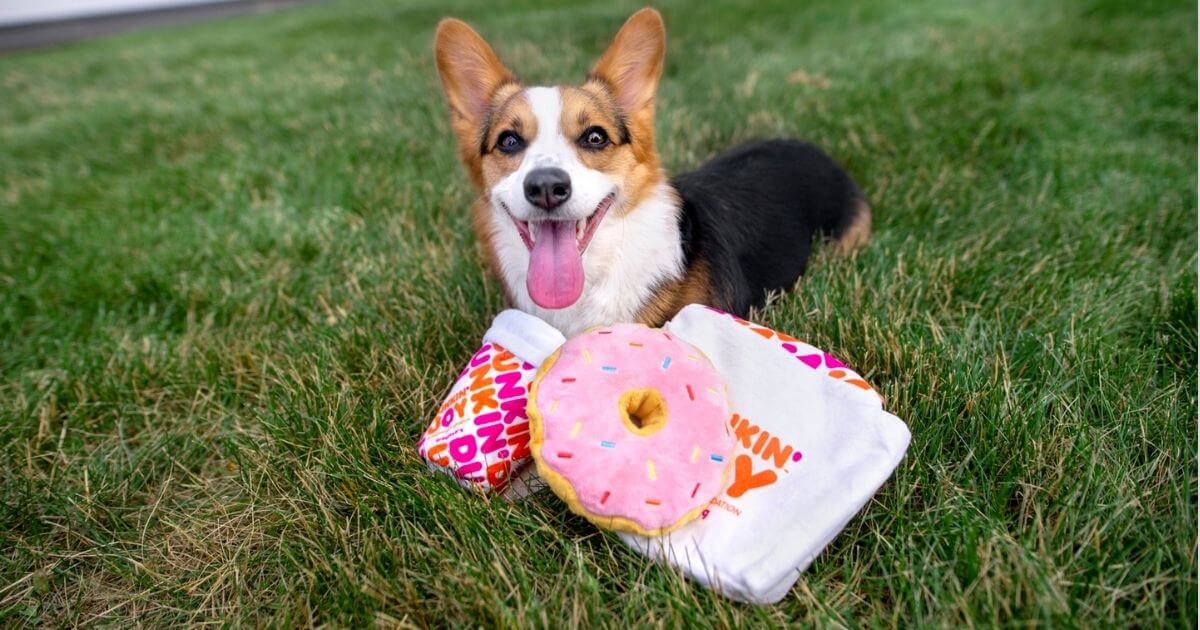Pet “Humanization” Opens Door to More Licensing

U.S. pet industry sales hit a historic high in 2020 and while the growth is expected to slow this year, there are signs that an increased appetite for licensing will continue.
The recent SuperZoo show in Las Vegas was all about the continued “humanization” of pets from they eat to the toys they play with — anyone for goat milk-based meal toppers or raw frozen entrees for cats? — a trend that only picked up speed with the newly homebound during the pandemic.
A Gen Z, Millennial Focus
And while licenses are involved in a small slice of total sales, they are increasingly being deployed to attract the coveted millennial and Gen Z pet set. And not without reason: a recent AlphaWise survey found that 64% of 18-to-34-year-olds planned to acquire or add a pet in the next five years, with overall pet ownership expected to grow 14% during the same period.
“Millennials and Gen Zers are major drivers of the humanization trend, and shop more frequently and spend more than older demographics,” Petco CEO Ronald Coughlin said during an earnings call last month, a point similar to one made by Bark Box CEO Manish Joneja when he talked about dogs being considered members of the family.
BarkBox – whose subscription box service had 1.9 million subscribers as of June 30, up 55% from a year earlier — has licensing agreements ranging from Warner Bros. (Scooby Doo) and WildBrain (Peanuts) to Dunkin – yes there’s a treat-dispensing “coffee cup” — the National Basketball Association (NBA) and a “Barkweiser” chew toy in a nod to the Budweiser brand. Most recently, Bark launched a limited edition collection of dog toys featuring Sesame Street characters.
Meanwhile Chewy.com launched a Disney collection earlier this year with more than 400 exclusive pet products.
Among developments in licensed pet products:
- Phelps Pet Products introduced Disney Table Scraps dog treats at 700 PetSmart stores. The Hot Diggity Beef Jerky featuring Pluto launched in August in the stores’ impulse section near checkout, says Phelps CEO Rich Ruffolo. Phelps, which is starting with treats featuring eight Disney characters in entering licensing for the first time, will add Mickey Mouse and Frozen’s Belle by late 2022.
- BarkBox will continue to expand its licensing business in 2022 with the addition of Netflix properties, CEO Joneja And retail distribution, which so far has been through Amazon, Costco, Target, PetSmart and Petco, is extending to DIY retailer Lowe’s, which has introduced 32 SKUs online, including a Barkheiser Chill Box.
- Publicly traded pet retailers are forecasting solid growth for the year. For example, Petco forecasts a 14-16% increase in revenue to $5.6-$5.7 billion for the year ending Jan. 30. Meanwhile, Chewy.com, which has 8.4 million active customers, is projecting revenue rising 25-26% for the year ending Jan. 31. And BarkBox forecast revenue for the year ending March 31 to increase 36.2% to $516 million, against a 68% increase to $378 million the previous year.
- M. Smucker Co.’s pet food sales tumbled 6% in the first quarter ended June 30, due partly to a downturn in sales of licensed Rachel Ray Nutrish dog food. Smucker, which acquired the brand in 2018, is seeking to revive Nutrish sales with the recent launch of four varieties of Nutrish Big Life for dogs weighing more than 30 pounds. “We do remain committed to the brand,” said Mark Smucker, president and CEO, said in releasing earnings. “We have continued our portfolio and packaging optimizations. We are still at the early stages of the Big Life launch. We believe that there is still potential for the brand.”
- Pet food and treats led the pack in the U.S. in 2020, with sales rising 9.2% to $42 billion; they’re projected to grow another 5% this year to $44 billion, according to the American Pets Products Association. Overall S. revenue is forecast to rise to $275 billion by 2030, up from $118 billion in 2019, according to Morgan Stanley. In Europe, where there are 88 million households with pets, revenue increased 3% to $43 billion in 2020, again led by pet food ($21.8 billion), according to Morgan Stanley.




